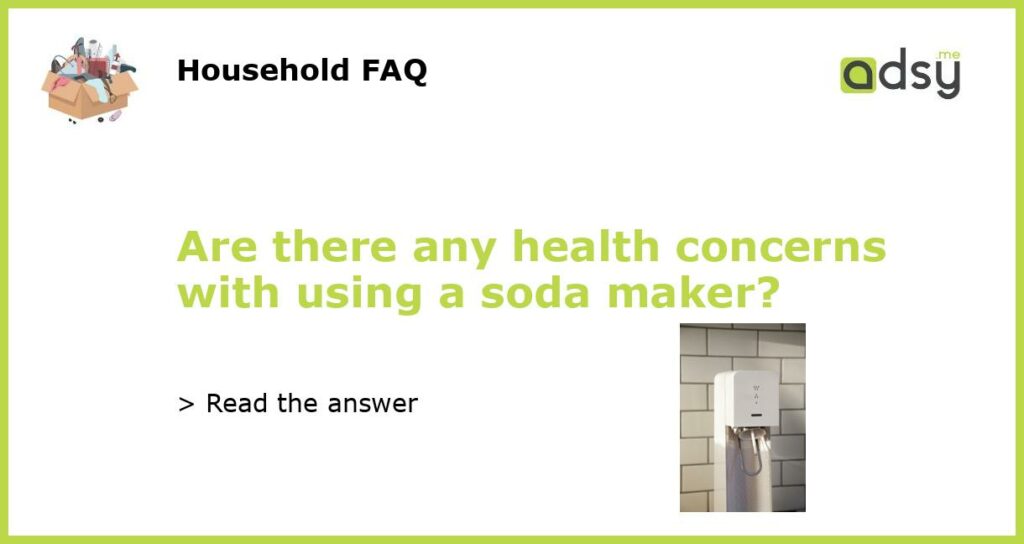Health Concerns with Using a Soda Maker
With the increasing awareness of the harmful effects of sugary beverages, many people are turning to alternative options to satisfy their carbonated drink cravings. One popular choice is using a soda maker to create homemade carbonated beverages. While this may seem like a healthier alternative, there are still some health concerns associated with using a soda maker.
Increased Sugar Consumption
One of the primary health concerns with using a soda maker is the potential for increased sugar consumption. While you have control over the amount of sugar you add to your homemade soda, it can be easy to go overboard and add excessive amounts. Consuming high levels of added sugars has been linked to a range of health problems, including obesity, type 2 diabetes, heart disease, and tooth decay. It’s important to be mindful of your sugar intake when using a soda maker and opt for healthier sweeteners or sugar-free options.
Dangers of Artificial Sweeteners
Soda makers often offer a variety of artificial sweeteners as alternatives to sugar. While these sweeteners may provide a low-calorie option, they come with their own set of health concerns. Artificial sweeteners like aspartame, saccharin, and sucralose have been linked to potential negative effects on metabolism, gut health, and even an increased risk of certain diseases. It’s essential to research and understand the potential risks associated with the specific artificial sweeteners used in your soda maker before consuming them regularly.
Acidic Nature of Carbonated Drinks
Carbonated drinks created with a soda maker are typically acidic in nature, which can cause several health concerns. High levels of acidity have been linked to tooth erosion, as it wears away the protective enamel on your teeth. This can lead to tooth sensitivity, cavities, and other dental problems. Additionally, the acidic nature of carbonated drinks can also contribute to acid reflux and digestive issues in individuals with sensitive stomachs. It’s important to consider the potential impact of the acidity of homemade sodas on your dental and digestive health.
Potential for Mold and Bacterial Growth
Using a soda maker involves the use of water, and if not properly cleaned and maintained, it can become a breeding ground for mold and bacteria. Mold and bacteria can grow in the water tank or on the soda maker’s various components, leading to potential health risks. Ingesting contaminated water or carbonated beverages can cause gastrointestinal issues, food poisoning, and other health problems. It is crucial to regularly clean and sanitize your soda maker to minimize the risk of mold and bacterial growth.
Environmental Impact of Single-Use CO2 Cartridges
While not directly related to personal health concerns, the environmental impact of using single-use CO2 cartridges in soda makers is worth considering. Many soda makers require the use of these cartridges to carbonate the water. The production and disposal of these cartridges contribute to the carbon footprint and waste generation. Opting for reusable CO2 canisters or exploring other carbonation methods may be a more sustainable choice.
In conclusion, while using a soda maker can be a convenient and cost-effective way to enjoy carbonated beverages at home, there are several health concerns that should be taken into consideration. These include the potential for increased sugar consumption, dangers of artificial sweeteners, the acidic nature of carbonated drinks, the risk of mold and bacterial growth, and the environmental impact of single-use CO2 cartridges. It’s important to be mindful of these concerns and make informed decisions to prioritize your health and well-being.






